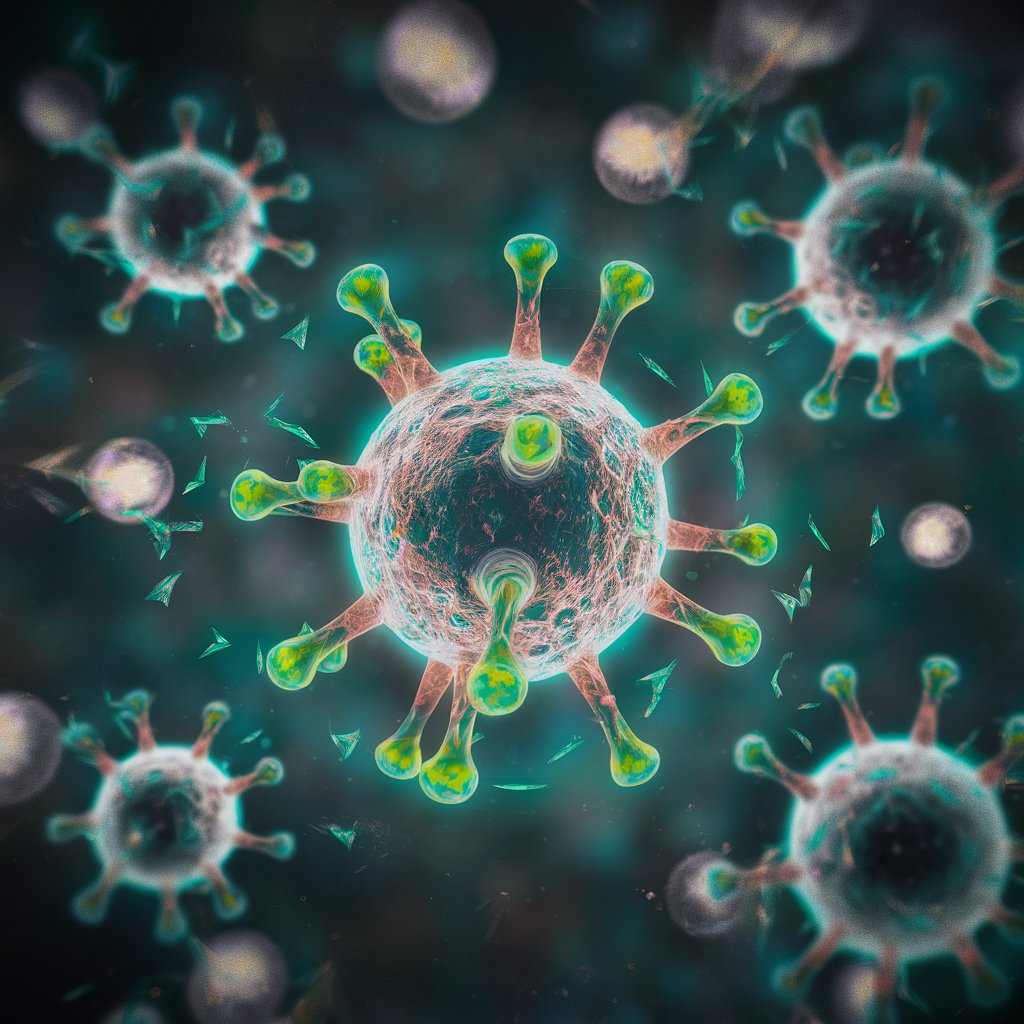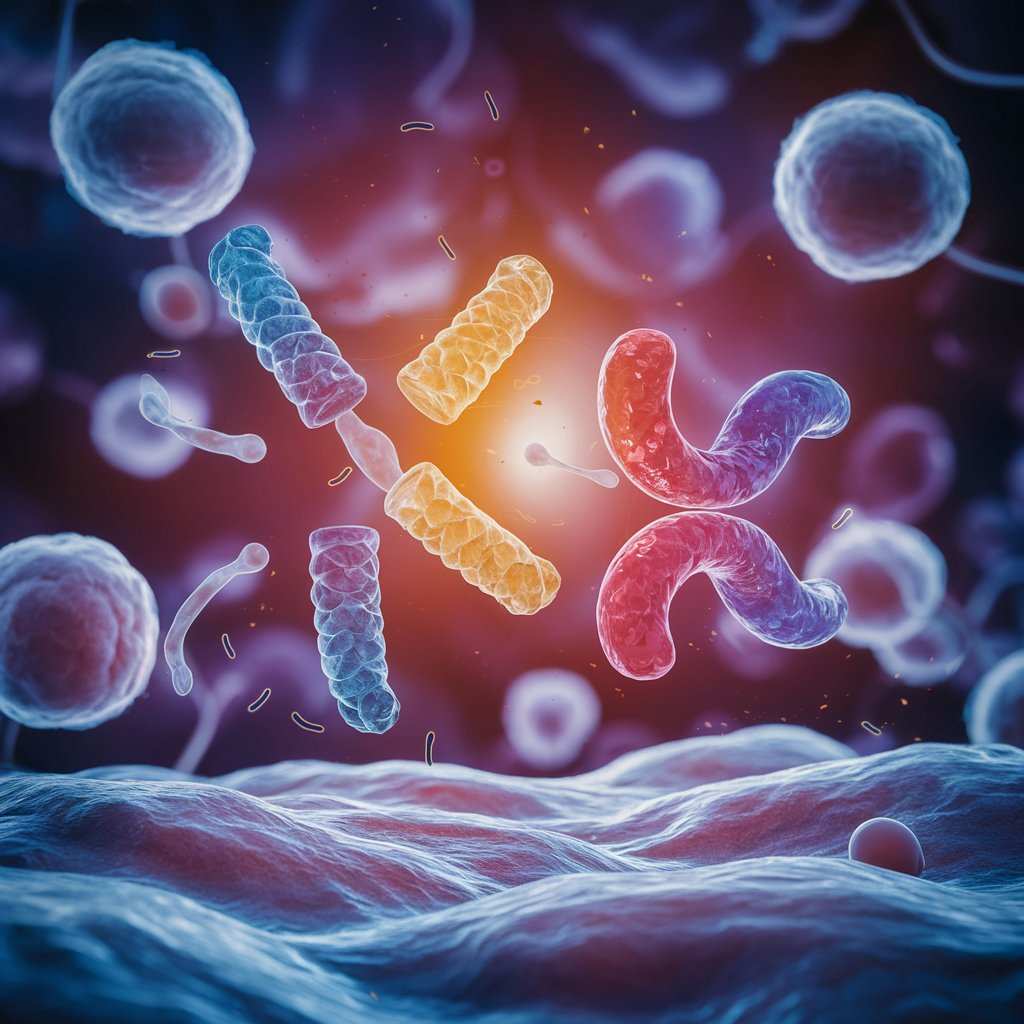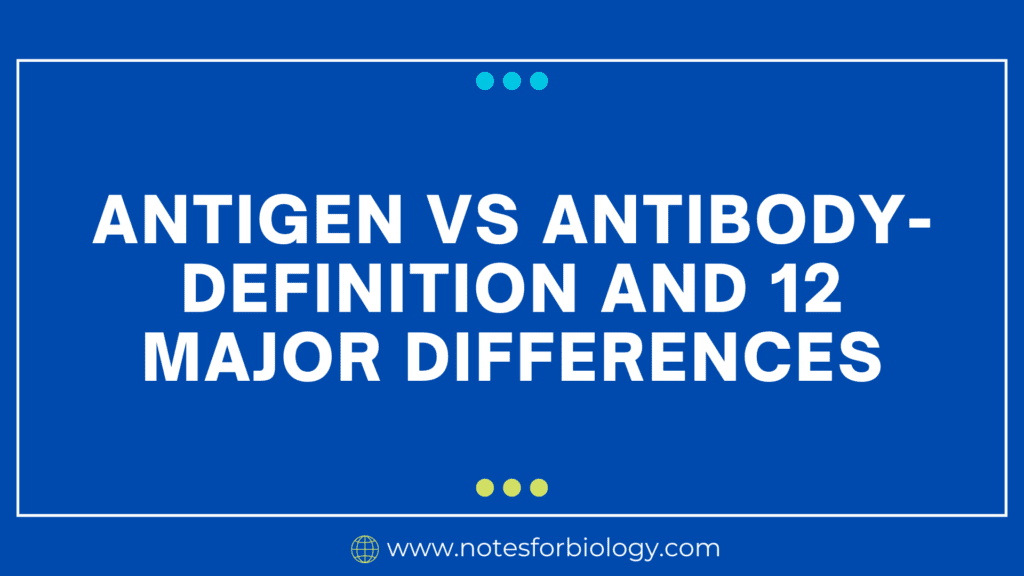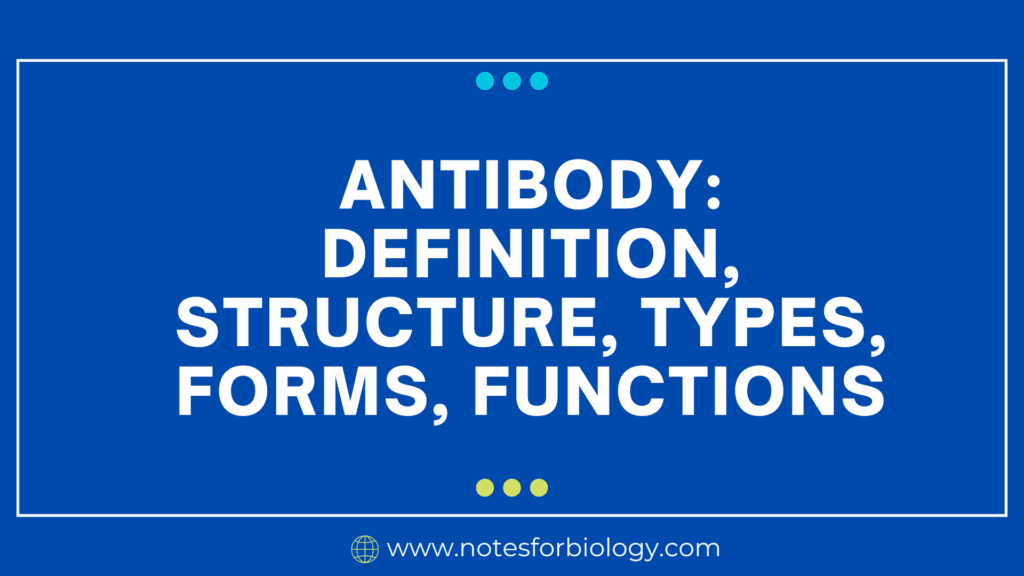The immune system is a complex network of cells and chemicals that work together to protect the body from infection and disease. Antigen and antibody are crucial to this defense process, serving unique but complementary functions. Antigen vs Antibody comparisons highlight the differences between these two critical components. Antigens are foreign molecules, usually proteins or polysaccharides, that trigger an immunological response when identified by the body.
In contrast, antibodies are specialized proteins produced by the immune system in reaction to certain antigens. They particularly bind to antigens, neutralizing them or designating them for destruction by other immune cells. Understanding the distinction between antigen vs antibody is critical to understanding how the immune system protects us from diseases and how vaccines and diagnostic tests are designed to harness this natural defensive system.
Table of Contents
Antigen
An antigen is a material that when introduced into the body causes the immune system to produce antibodies. Antigens are often foreign molecules present on the surfaces of pathogens (bacteria, viruses, and fungi) or foreign particles (pollen, poisons, or transplanted tissues). The immune system recognizes these molecules as “non-self” and initiates a response to neutralize or remove them.

Antibody
Antibodies, also known as immunoglobulins, are Y-shaped proteins produced by B cells (a kind of white blood cell) in reaction to the presence of an antigen. Antibodies are an essential component of the adaptive immune system, identifying and attaching to antigens in order to neutralize them or mark them for destruction by other immune cells. Each antibody contains a distinct variable region that enables it to bind only to a given antigen.

Antigen vs Antibody
The differentiation between antigen and antibody are:
| S.No. | Antigen | S.No. | Antibody |
| 1. | It is also called Immunogens. | 1. | It is also called Immunoglobulins. |
| 2. | Antigens originate outside the body. | 2. | Antibodies arise within the body. |
| 3. | Antigens cause the generation of antibodies and the activation of immune cells. | 3. | Antibodies bind to antigens, neutralizing or marking them for destruction by other immune cells. |
| 4. | Antigens are used in vaccinations to elicit an immunological response. | 4. | Antibodies are proteins that are produced as a result of vaccination and provide immunity. |
| 5. | Each antigen contains several epitopes (specific regions that antibodies recognize). | 5. | Antibodies are highly specific; each one attaches to a specific epitope. |
| 6. | Epitopes are areas of the antigen that interact with the antibodies. | 6. | Paratopes are changeable portions of an antibody that bind to epitopes. |
| 7. | These are the chemicals that elicit an immunological response. | 7. | These are glycoproteins that immune cells (plasma cells) produce in reaction to a foreign material (antigen). |
| 8. | Exists in all cells, but is most commonly found in viruses, bacteria, and fungus. | 8. | Only present in certain types of cells. |
| 9. | Classified as complete (able to elicit a full immune response) or incomplete (hapten, needs a carrier to become immunogenic). | 9. | Five primary classes: IgG, IgA, IgM, IgE, and IgD. |
| 10. | Antigens result in allergic reactions or even diseases. | 10. | Protects against the effects of the antigen either through lysis or immobilization of the particle. |
| 11. | Highly variable, with several structural conformations and typically consisting of different epitopes. | 11. | Composed of three major parts: -two light chains -two heavy chains -Four polypeptides |
| 12. | Antigens vary widely; there is no specific structure. | 12. | Antibodies are Y-shaped structures with varying sections that bind certain antigens. |
Finally, comprehending the immune system’s complex defense mechanisms requires a clear differentiation between antigen vs antibody. Antigens, or foreign substances, trigger the immune response, whereas antibodies are the body’s specific defense against these invaders. The antigen vs antibody interaction ensures that infections are recognized, neutralized, and destroyed, so protecting human health. This fundamental antigen vs antibody connection is the foundation of immunological research, resulting in the creation of vaccinations and diagnostic tests that take use of this natural defense. Understanding the complexity of antigen vs antibody interactions allows us to acquire a better understanding of how our bodies fight diseases and maintain immunity.
Frequently Asked Questions (FAQ)
What is an antigen?
An antigen is a foreign substance that causes the body’s immune system to respond. It could be a protein, polysaccharide, or lipid.
What is an antibody?
An antibody, also known as an immunoglobulin, is a protein produced by B cells in response to an antigen that is particularly designed to bind to, neutralize, or kill it.
What are the major types of antibodies?
The five primary types of antibodies are IgG, IgA, IgM, IgE, and IgD, each with a unique role in the immune response.
Related Articles


